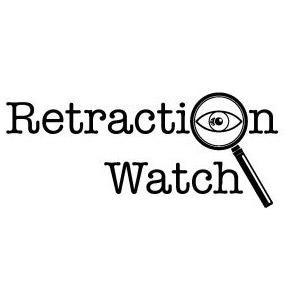Like everyone else, it seems, we here at Retraction Watch are more than ready to put 2020 to bed. It was a bittersweet year to celebrate our tenth anniversary and reflect on what we’ve learned. But the work never stops, so as we’ve done every year since 2010, we’ll take a look at the most notable retractions of the last 12 months, and review some important milestones and events.
Given that journals retracted more than 1,800 papers in 2020, we had plenty of stories from which to choose. However, leading the list would have to be the papers about the pandemic that were pulled for flaws ranging from problematic data to shaky science to absolute wackiness. Indeed, if Covid were an author, it would be fifth on our leaderboard, with 72 so far. We’re certain that’s not the high-water mark for Covid retractions given the haste with which scientists have churned out papers about the disease and the virus behind it.
The intersection of politics and science drew particular attention, such as this paper about race and police killings whose authors triggered an outcry from the right after they called for their work to be retracted. Some journals engaged in an exercise of cupboard cleaning, retracting papers offensive to minorities, women and other groups. As we argued in Wired, critics of this “purging” tended to miss the larger point: the papers deserved to be retracted not just because of their repellent content but because they were scientifically unsound. And best practices for retraction recommend that they not disappear down a “memory hole,” but that they remain online, but marked “RETRACTED.”
The Retraction Watch Database — expertly curated by our researcher Alison Abritis — continues to be the largest repository of its kind, with more than 23,000 retraction entries. We’re gratified that scholars are finding our project useful in their own work; here’s a list of 50 recent papers that have cited our reporting, the database or both.
The mass media continues to do the same. This year, we were interviewed by The Economist, The Washington Post, The New York Times, Nature, and On The Media, among many others.
We’ve added new partnerships: the Korea Institute of Science and Technology Information, scite.ai, and Third Iron. Those, along with our partnerships since last year with Zotero and RedacTek, make the contents of the database available to others, whether to alert researchers to retractions, or inform decision-making.
We also were honored to continue working with researchers at the University of Illinois, led by C.K. Gunsalus, the director of the National Center for Professional and Research Ethics, on a multi-year grant from the Howard Hughes Medical Institute.
We saw continued growth in subscribers to our daily newsletter, which now reaches more than 8,000 readers. To all of you who have signed up to receive the Retraction Watch Daily, and to everyone who finds what we do helpful, valuable or simply entertaining, we say a most heartfelt Thank You!
We would be remiss if we did not ask you to let anyone you know who might want to support our work that such contributions are tax-deductible, and that if they use this link, PayPal doesn’t charge us any fees. We can also accept donations through Crowdrise, and by check made out to The Center For Scientific Integrity and sent to 121 W. 36th St., #209, New York, NY 10018.
All best in 2021.
Like Retraction Watch? You can make a tax-deductible contribution to support our work, follow us on Twitter, like us on Facebook, add us to your RSS reader, or subscribe to our daily digest. If you find a retraction that’s not in our database, you can let us know here. For comments or feedback, email us at [email protected].

Thank you!!1
First time I’ve seen your piece in Wired, and I’m surprised by your dishonesty. You conflated a controversial OPINION piece in a German journal with poorly researched peer-reviewed material and then pretended critics of censorship must be uneducated rubes.